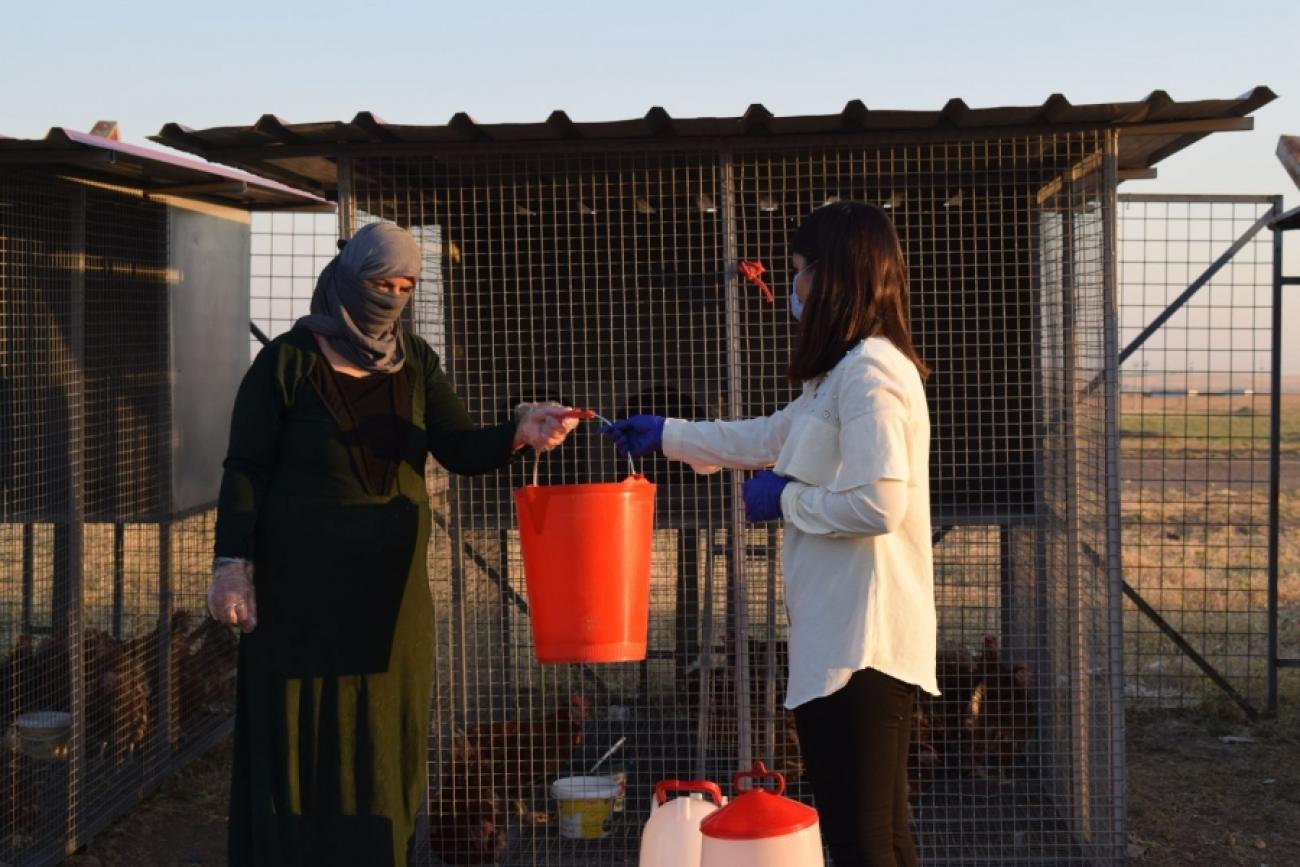Twenty internally displaced families living in the Shekhan Displacement Camp are benefitting from the Japanese Government funded United Nations Industrial Development Organization (UNIDO) Household Poultry Project— an initiative designed to promote economic empowerment and pathways to entrepreneurship. The program grants each participating family with laying hens for egg production, feed and coops, as well as the workforce training necessary for establishing and sustaining businesses.
Thus far, 400 hens, 20 coops and 5.5 tons of feed have been distributed to the participants. With the average hen capable of providing up to 300 eggs over the course of a year, the project can easily provide each food-insecure family with much needed sustenance as well as an income, ultimately reducing dependence on emergency assistance and promoting health.
Projects such as this are essential for the families living at the Shekhan Displacement Camp. Well into six years of displacement, there is little hope they will return home and pick up with the livelihoods they knew in their past lives.
Displaced in the camp since 2015, Hannan Said, a married mother of two, is one of the beneficiaries of the UNIDO Project. Hannan was working in harvesting and packing potatoes and common beans for an average of 4 dollars a day prior to the project. Her husband’s disability prevents him from working, so the 4 dollars a day—along with some emergency assistance offered by the camp— was the family’s only income. The 8 hours of work per day involved was only available during harvesting time, making it an unviable vocation.
The unfortunate reality for the internally displaced is that work can be difficult to find. Harvesting crops, often far outside the camp, is quite often the only means of income and does not equate to enough to support a family.
Hanan says of the UNIDO Project, “I was always worried about how to find a reliable source of income to support my family. This has given me ample information on rearing local chickens. Now I can be close to home and generate a stable income and also take care of my family. My children are happy because they know that I can provide food and make some income each day.”
42-year-old Adol Ali Hamika, a divorced mother of six, is another beneficiary of the UNIDO Project. Adol was also a seasonal worker harvesting beans and potatoes prior to her participation in the poultry farming.
“My life is much better,” says Adol. “Coops are very well designed and safe, and we have received plenty of feed”. Adol excitedly said that, “besides the income I make, selling eggs is giving me pleasure as I consider the chickens also as pets and companions.”



